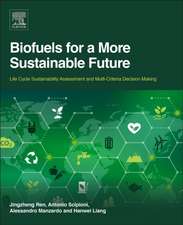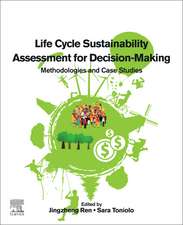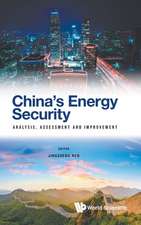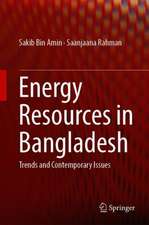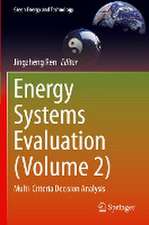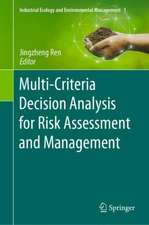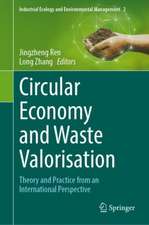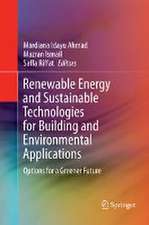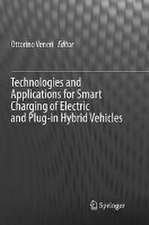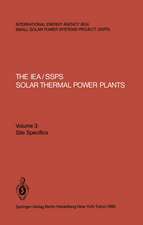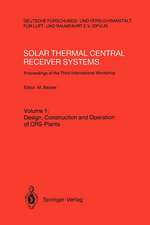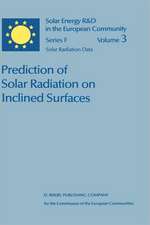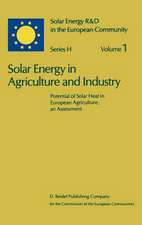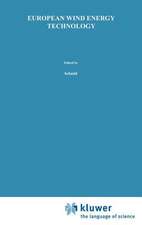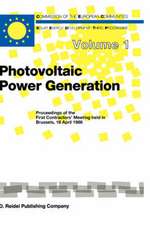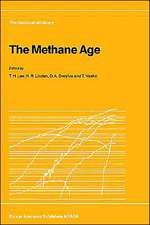Waste to Renewable Biohydrogen, Volume 2: Numerical Modelling and Sustainability Assessment
Editat de Quanguo Zhang, Chao He, Jingzheng Ren, Michael Evan Goodsiteen Limba Engleză Paperback – 27 oct 2022
This well-rounded reference supports decision-making for energy researchers and industry practitioners alike, but it is also ideal for graduate students, early career researchers and waste management professionals.
- Includes numerical simulation models for environmental performances and sustainable supply chains
- Explores modeling methodologies for the optimization and upscaling of sustainable technologies and systems
- Offers global case studies and comparisons of different feedstocks
Preț: 930.78 lei
Preț vechi: 1275.05 lei
-27% Nou
178.14€ • 185.26$ • 149.07£
Carte tipărită la comandă
Livrare economică 15-29 martie
Specificații
ISBN-10: 0128216751
Pagini: 270
Dimensiuni: 152 x 229 x 18 mm
Greutate: 0.36 kg
Editura: ELSEVIER SCIENCE
Cuprins
Waste to Renewable Biohydrogen, Volume Two: Numerical Modelling and Sustainability Assessment provides an integrated approach on the experimental, modeling and sustainability aspects of waste-to-biohydrogen systems. The book focuses on processes for waste treatment to hydrogen production, delving into modeling and simulation methodologies for the design and optimization of different processes and systems. In addition, it looks at the application of computational fluid dynamics and artificial neural networks. Finally, it addresses the economic, environmental and sustainability implications of waste-to-biohydrogen systems, covering several techniques for cost-benefit analysis, techno-economic analysis, lifecycle assessment, sustainability ranking and supply chain design.
This well-rounded reference supports decision-making for energy researchers and industry practitioners alike, but it is also ideal for graduate students, early career researchers and waste management professionals.

